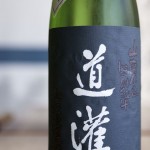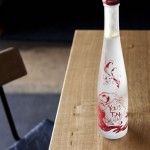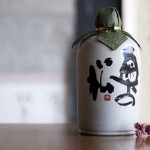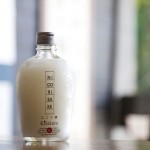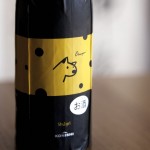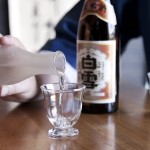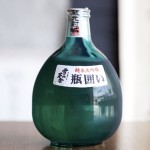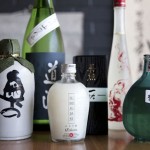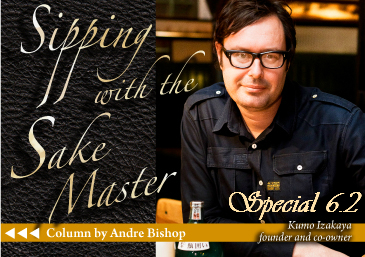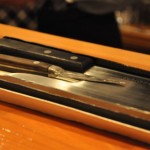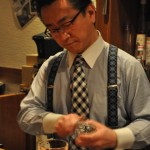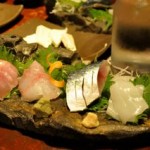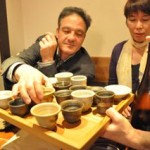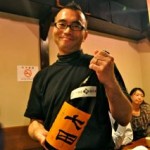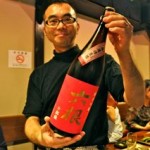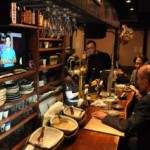By Delima Shanti,
17 December 2012
With their unique flavour profiles, the use of Japanese spirits in cocktail culture is on the rise. We chatted with Japanese beverage expert Andre Bishop to find out more.
Over the past few years, the popularity of sake and the growth contemporary Japanese cuisine has been on the rise in Australian cities, providing us with a refreshing outlook on an often intriguing, innovative and charming culture.
So it shouldn’t come as a surprise that Japanese spirits such as shochu (a rice-based spirit), umeshu (plum liqueur) and yuzushu (a citrus liqueur) have crept into the bar scene as both experimental and inventive ingredient options.
Andre Bishop, owner, sake expert and resident Japanophile at Melbourne’s Kumo Izakaya, explains that cocktails actually make for a perfect “gateway drink” for Japanese spirits.
“Cocktails are a great way to introduce Japanese spirits into the usual line-up of cocktail ingredients. Bars around the world are now looking to see what they can do with spirits like umeshu and shochu and how they can use these the same way you would use vodka or tequila,” he says.
However, as a sake purist, Bishop prefers not to use the refined flavour profile of sake (especially high-grade sake) in cocktails.
“Most premium sake is probably not suited for cocktails because it’s such delicate, subtle taste. The subtle notes can get lost pretty easily in a cocktail,” he explains.
“But with cocktails in mind, there are…certain styles of sake that are better suited in drinks, like the more full-bodied, high-alcohol Nama Genshu sake, or the Nigori sake [a cloudy sake with floating rice sediments] that adds a nice acidity and texture to cocktails.”
And in regards to the largely unknown nature of Japanese beverages, Bishop explains that there really is no great mystery. Put simply, it is better to approach mixing the ingredients into a cocktail with a light touch. The Japanese palate is in general subtler, lighter and less boisterous than the usual cocktail ingredients we are familiar with, so all you need to do is treat the process with a bit of care.
“Part of what makes Japanese cocktail ingredients so special is that it brings new flavour profiles and even textures that you don’t get with popular Western ingredients,” Bishop says.
“Some more modern sake companies are now making sweeter, carbonated sakes that are almost like champagne and are great in tall cocktails and spritzers.”
That said, the world of cocktails is all about discovering and experimenting with new flavours, and with modern sushi bars and izakayas now a common fixture in most cities, it only makes sense that Japanese alcohols are now taking their worthy place on the shelf next to other worldly staples like vodka, gin and tequila.
http://www.broadsheet.com.au/melbourne/food-and-drink/article/drinking-japanese

